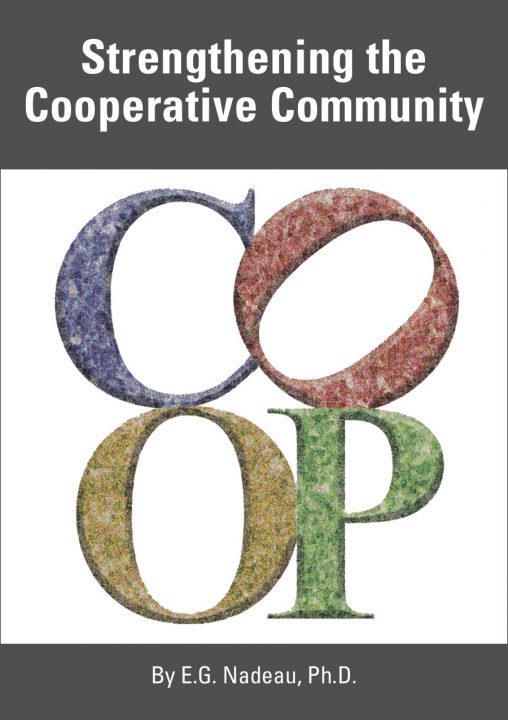Strengthening the Cooperative Community, E.G. Nadeau (EG Nadeau, £10)
Emile Nadeau is well-placed to offer insights into co-op development: his experience dates back to 1970 when, fresh from Harvard, he joined the Peace Corps in rural Senegal and discovered models of informal co-operation at work.
While there, he suggested forming a co-operative marketing system among the fishermen of the village. Even though the project did not take off, he took home his new belief in the power of co-ops to solve economic and social problems.

In 1984 he got a job helping set up a co-op development organisation in Wisconsin. Since then, he has been researching, developing, teaching and writing about co-operatives and community development. His work included a spell as research director for the US Overseas Cooperative Development Council between 2014-2015. He has been doing domestic and international consulting work for a range of co-ops and apexes.
In this book, Nadeau explores lessons from the history of co-ops with case studies – successful and unsuccessful – from around the world, to present lessons on some of the key elements of sustainable co-operative development.
This includes analysis of entrepreneurship, research, education, laws and regulations, finance and co-operative development organisations, all drawing on Nadeau’s enviable and varied experience.
He also explores what the future might hold for the co-operative movement, arguing that “co-ops should shift from primarily playing a gap-filler role to instead becoming innovative, proactive leaders in building a more equitable and just world economy”. To do this, he suggests increasing the movement’s proactive development skills and reshaping it to meet the needs of the 21st century.
While many co-ops acknowledge the importance of the climate crisis and international co-op leaders voice support for the United Nations’ Sustainable Development Goals, Nadeau says the movement has not done enough on either front.
With its development lessons and recommendations for strengthening the co-op community, the book sets out practical steps that the movement can take to remedy this – to expand its reach and stay relevant.
A must-read for development co-operators and community organisers, the book will soon be available through local bookstores as well as Amazon. It can also be downloaded from thecooperativesociety.org